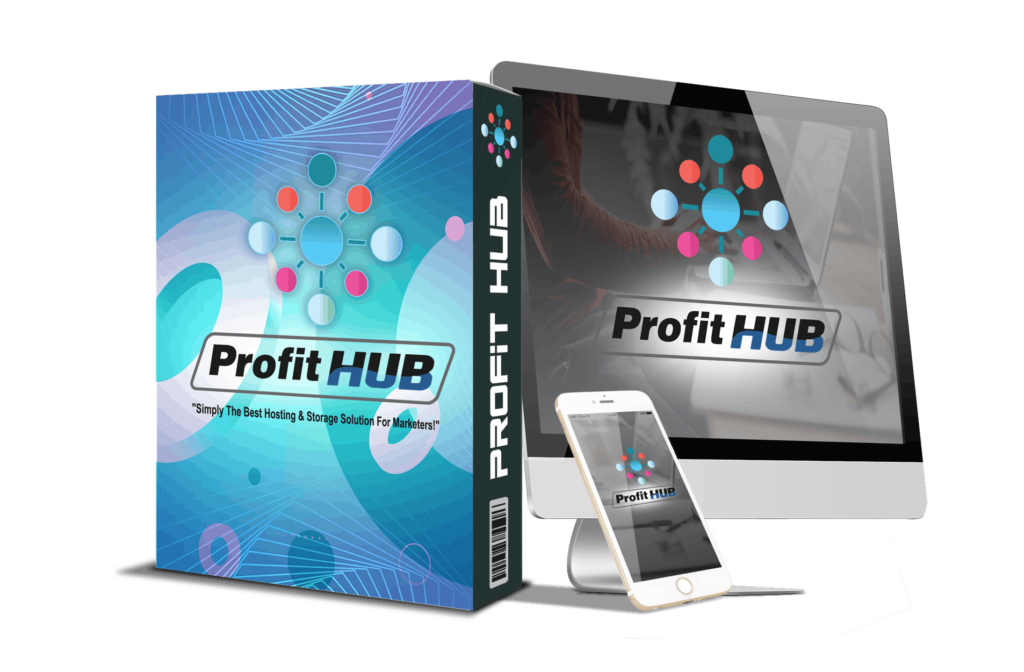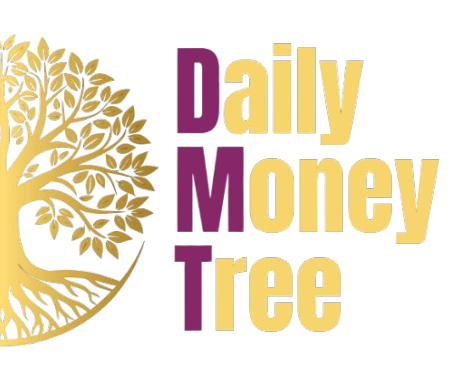Does starting a blog still make sense? And how to create a successful blog? In this mega guide, I’ll explain how to start a blog from scratch and be able to monetize it
Creating a blog is a great way to create a business parallel to your job (the so-called side business) and eventually make it a real job.
With around 4 million posts published every day, the question arises: does it still make sense to create a blog? Or is the market already saturated? And how can you make money with a blog?
In this guide, I’ll explain step by step how to create a blog nowadays, from the preliminary analysis to the creation of the site, to get to promotion and monetization.
It is a guide of over 9,500 words, always being updated. All the marketers out there would charge you for such content. But I am of the opinion that the world really needs new bloggers and these notions must remain in the public domain.
Then save this guide in your browser favorites so that you can have it handy whenever you want.
Do you always want to have the steps for creating a blog at your fingertips? Then download the Checklist and create your blog making it monetizable in 7 days.

How to create a blog: the steps
So how do you start a blog?
The main steps you need to follow to create a successful blog are:
- Find your Why
- Choose the niche
- Buy the domain and hosting
- The design and structure of the blog
- Create the main pages of your blog
- The keyword research and the editorial plan
- Write your first article
- Optimize SEO.
Once these steps have been completed, it’s time to start monetizing. We will see how to do it in detail in the course of this article.
What is a blog?

A blog is exactly what you are reading right now: a website with content that is updated regularly that has the dual purpose of attracting new readers and generating online revenue.
There are numerous ways in which it is possible to make money with a blog: we will see some of them later.
Why should I start a blog?
Creating a blog is one of the simplest and cheapest ways to start your own business and become a web writer, earning directly online.
Anyone can do it, the important thing is to study the basics of blogging in order to be able to write effective articles, capable of attracting readers and positioning themselves on search engines.
However, they are skills that are learned along the way: the right time to start is today!
Does it still make sense to start a blog or is the market already saturated?
70 million new articles are posted on WordPress every month and 77 million new comments are posted.
And WordPress also offers a map that shows activity in real time: new posts, likes and live comments.
In such a competitive world, many people therefore give up on blogging even before starting for fear that the market is already saturated.
It’s actually still a perfect time to write a blog.
However, the watchword must be “differentiation”, that famous “Differentiate or Die” by Jack Trout (if you haven’t read that book yet, you absolutely have to!).
These days I did some research and found dozens of blogs all the same, with articles all the same, with the exact same call to action.
In the era of the Killer Competition it is therefore still essential to be able to stand out and stand out from the competition.
Maybe imagining – even for just a second – that our light can be a little brighter than the 3 million lights that appear on the WordPress map every day.
Do you need technical knowledge?
No. There are many tools that help you create a blog without you being a developer or a copywriter and I’ll explain everything step by step right in the course of this article.
Any additional skills you want to learn, you can learn over time.
Is it still possible to make money with a blog?
Absolutely!
There are many different ways to make money with the blog, and some of them can generate a really big income. We will be getting into those as well.
1. Find your “Why”
Even before creating a blog, even before starting to write, even before thinking about how to monetize it, there is a fundamental step you need to take: find your why, your why.
But what does this mean?
Before starting you need to deeply understand why you are doing it. What are your goals? Which values do you want to convey? What is the message you want to bring to the world?
According to Blog Tyrant, about 60% of the blogs that are created are also abandoned. This is generally because blogs fail to generate stable revenue.
On the other hand, other blogs, on the other hand, manage to obtain earnings of even € 100,000 or € 200,000 per month.
So what’s the difference between a successful blog and a blog that will be abandoned?
One of the elements of a blog’s success is undoubtedly finding one’s Why, a profound inner analysis that can make a real difference. As Simon Sinek repeats, people don’t buy your product, they buy your WHY, why you are doing it.
I leave you below an interesting video by Simon Sinek on this topic. And if you want to deepen the discussion, I suggest you read these two books by Simon:
- Find Your “Why”: Only those who know their deepest motivations can fulfill themselves, inspire others, and become a great leader
- Starting from the why: Like all great leaders, they know how to inspire employees and customers
2. Choose your niche

Once you understand your why, why you are doing what you do, then it is really time to start preparing an action plan. The first step is usually that of choosing your niche and analyzing the target.
But what is meant by niche?
A niche is the thematic area you will deal with in your blog, such as travel, cooking, fashion, technology, fitness or do-it-yourself. The niches can tend to be infinite. The more specific the niche, the greater the chances that you can fit into that niche.
In fact, it is important not to make the mistake of addressing “everyone”, but only to a particular niche that shares your same interests and values.
I’ll explain better.
If I want to position myself in the sector – therefore in the niche – food, the competition is very high. Being able to emerge is therefore very difficult, unless you have a truly revolutionary idea and a lot, a lot of money to invest in it.
If that’s the case, then go for it and good luck! But if you are a person a little more in the norm, you will understand well that to be able to monetize a blog we need to find a slightly more profitable niche. And this results in a specific niche.
So let’s go back to the example of food. If you verticalize on a sub-niche of food, such as recipes with almonds, then the competition drops exponentially and you will have more chances to position yourself.
What you are going to do, therefore, will be to attract all the people who are interested in almonds: the history of almonds, their cultivation, recipes with almonds. All those interested in almonds will no longer turn to generic food sites but will love your blog.
But how to choose your niche?
Blogging as a passion
Many marketers will tell you to follow your passions. Monetize your passions. Create a business on your passions. But you know what? This is only partially true because if we exclusively follow our passions we get lost along the way of a practical and fundamental component: monetization.
Look closely, I’m not saying passion isn’t important. The important thing, however, is to understand how to monetize that passion (and if there is the possibility of monetization).
Creating a blog, constantly writing new content, following social networks, comments, emails… is a real full-time job. If this work does not bring financial results, soon your blog will end up in 60% of abandoned blogs around the world.
And this is precisely the reason why 95% of blogs do not have stable economic income: because we think of blogging as a passion and not as a company.
This is the real secret to a successful blog: treat it like a company, like a business. Putting economic revenues first, optimizing what brings monetary results and eliminating the superfluous.
This does not mean that we cannot create a blog and carry it on if it is not a passion of ours.
S.M.A.R.T. objectives

You do not open a blog for passion but for business (always if you want to make a profit). And if the topic is about your passion, then the chances of success are certainly higher.
I recommend that you develop a plan of goals that you want to achieve with your blog. They can be traffic goals (e.g. 1,000 monthly readers within 3 months), monetization goals (e.g. € 1,000 monthly within 3 months) and so on.
The important thing is that the objectives are S.M.A.R.T., namely:
- Specific
- Measurable
- Achievable
- Relevant
- Time-bound
Which niche is profitable?
So we come to the crucial question: how do you choose a niche that is profitable? A profitable niche has 4 characteristics:
- It has a decent number of people interested in the subject
- Discuss a topic you know well
- People are willing to spend some money
- You have something to sell in that niche.
If you have covered all of these 4 points, then the niche can be profitable and worth a try.
And now let’s move on to the practical test: based on the characteristics I explained to you, which of these do you think is a profitable niche?
- People interested in turtle shells with wheels?
- People interested in yoga?
Great, you passed the test!
One last important note before moving on to the next paragraph: when are people willing to spend money? The answer is very simple: when you help them solve a problem.
Think carefully about every time you’ve made a purchase. You did it to solve a problem, knowingly or unknowingly. Find your niche, understand what its problem is and offer a solution.
3. Start a WordPress blog

You have found your why, you have selected your niche. What do you do now?
Now is the time to take action! The first thing to do is to find a name for your blog.
Opt for a simple name, one that you remember well and knows how to encompass all the core of your business. If your goal is to develop your personal branding, as for example in my case, then the blog can be called with your name and surname. A simple and very effective solution!
Once you have chosen the name, you must purchase the domain, which is the physical address of the blog. In my case, www.eleonorabaldelli.com is the domain I chose and purchased. This domain will then need to be placed on a server that is purchased through a hosting plan.
To better understand the concept, think of your blog as a home. The domain will be the address of the house while the hosting will be the land on which it is built.
But how do you buy domain and hosting? There are many solutions.
When it comes to domains I strongly recommend Namecheap. They are cheap, cover all the bases, and have great support.
What I recommend is to join ProfitHub. That way you will get unlimited hosting for unlimited domains.

4. Create the blog design and structure
Once your house is built on the land (hosting) and has its own address (domain) it is time to furnish it, that is to create all the content that will make up your blog.
The first thing to do is therefore to choose a theme (or template), that is a graphic layout for your website. There are also many free ones and you can find them by logging into your WordPress site and clicking on the menu on the left Appearance> Themes.
Now just click on “Add new” to open a window with hundreds of free templates that you can install on your website.
You can also decide to create the entire layout from scratch by installing Elementor for example.
Even if you are not a design expert, I advise you to pay particular attention to the appearance of your site.
A study conducted by Google together with the University of Basel, in fact, showed that in a fraction of a second your readers will perceive the aesthetic beauty of your site.
Good design means trust.
In fact, people tend to trust more a site with attention to every detail. This means that based on the layout you choose, people will decide in a split second whether to trust or not trust you.
5. Create the main pages of your blog
The main pages that make up a website, excluding the blog, are:
- Homepage, i.e. the first page of the site
- About page, where you explain who you are
- Contact Page, i.e. the contact page.
Creating a Homepage

As for the homepage, initially you can also show the latest blog articles.
To choose this option go to the WordPress menu and select Appearance> Customize and in the menu that opens Settings Homepage> Your homepage shows> select “latest articles”.
If you select “A static page” instead, it will ask you which page you want to show. Choose the page you have already created or create a new one.
To do this, just go back to the main WordPress menu and select Pages> Add Page. If you have Elementor installed, click on Edit with Elementor now and create your new homepage.
Don’t forget to go back to Appearance> Customize and select the new page as your homepage.
The About page and the Contact page
The About page is a very important page because it will become your business card.
It will be on this page that readers will discover who you are, what your story is, what your “why” is.
- Why should people listen to you?
- What problem can you solve?
- How can they contact you?
Then explain on your About page who you are, your story or the history of your company, what are the services you offer but also what are your values, your goals and the message you want to convey in the world.
You can also add, for example, your works, a link to your social networks and a contact form through which they can quickly write to you. Alternatively, you can create a separate Contacts page where you can explain how people can reach you, physically, by phone or by email.
Try to be genuine on your About page. People need more to see true truths and results, setbacks and failures and how they have been overcome instead of (rented) apartments in Dubai and Ferrari (rented) in the garage.
Nowadays, the real differentiating element is precisely authenticity.
And that’s what makes the difference between a blog that may be successful for a while but then tends to die compared to a real one, which grows more slowly but is destined to last over time.
6. Prepare your keyword research and editorial plan
Your website is now officially ready. Now you can really start creating content.
All beautiful, a lot of energy, mucho enthusiasm. But … what should we write? What should we talk about?
That’s where keyword research comes into play.
The starting point for keyword research is your niche. Let’s go back to the example of the blog on recipes with almonds.
Try to do a first search on forums, such as Quora, on Facebook groups, on other blogs that deal with recipes with almonds and try to understand which are the most asked questions.

They could be for example:
- How do you shell almonds?
- How is almond paste prepared?
- Where can almonds be bought?
Obviously, these are questions that I am asking totally at random, but by looking where I told you you will surely find ideas that you had not thought of.
Now, write 5-10 of these ideas and questions, including your own ideas and topics you would like to cover. This will be the basis for your keyword research.
The keyword research is therefore a keyword search that is done through some tools to understand if and how much demand there is actually for this topic on the web and then target the keywords that can bring you the most traffic.
There are numerous ways to come up with new ideas for your blog posts.
One of the tools I use very often is as simple as it is powerful: Answer the Public.
As a result, you will find all the questions and research that people have done on that topic, offering you hundreds of other keywords that can help you verticalize your articles.
The more your articles answer the questions people ask on the web, the more your content will be appreciated by your audience. So save Answer the Public among your favorite tools because it will be a powerful ally for writing your blog articles.
7. How to write an article on WordPress
Now that the editorial plan is ready, it’s really time to write your first article. Then go to WordPress and from the menu on the left choose Articles> Add new.
To write an effective article, which knows how to satisfy both your readers and Google mom, there are some precautions that you must always keep in mind.
The first is to always offer truly quality content, which knows how to make a difference. I know it is a phrase that is often repeated when we talk about marketing, but the value is something that tends to be lacking more and more often, and just take a tour of the many existing blogs to realize it.
Ecco allora qualche consiglio per scrivere degli articoli di valore concreto:
- Offer solutions that can be applied right away
- Prove your skills and knowledge and accompany them with authoritative sources, real results, and case studies
- Help people genuinely and sincerely
- Make the title of your post captivating, without falling into vulgar click-baiting. There are many online tools that help evaluate the effectiveness of your headline, as I also explained in the article “How to write an effective (and attention-grabbing) headline: 25 tips and examples to make your headline captivating”
- Include videos, images, graphics, and infographics in the articles to help readers follow and deepen what they are reading
- Write simple, short sentences, just like I am doing in this article. Wrap often so as to leave white spaces that help reading on the screen, physically more difficult than reading on paper
- Use bulleted and numbered lists
- Use the headlines (H2, H3 …) in order to facilitate the consultation of the article
- Highlight important words with bold or italics
- Even if there is no ideal minimum number of words, I recommend that you write posts over 1000 words.
8. Creating a successful blog: SEO optimization

Once your article is completed, if you have installed the Yoast SEO or Rank Math plugin, below the article you can find numerous suggestions that can help you optimize the article for search engines.
Consider the Yoast traffic light just an indication. Having a green light does not mean that the article will definitely position itself while I happened to place articles that instead had a red light.
Once you’ve checked Yoast’s or RankMath’s indications (these above are from RankMath and relate to this article at this point in the article), it’s time to optimize the snippet.
The title is automatically taken from the one entered at the top (H1). If it exceeds the allowed characters you can write another shorter title.
Then optimize the URL, inserting only the keyword (and not the entire title of the post) and the meta description, trying to insert the keyword you have chosen.
Now, in the menu on the right, insert a highlighted image and rename it with the keyword of your post. Also choose the category of the article and any tags.
Et voilà, your post is optimized and ready to go!
How to monetize your blog

In the course of this long guide you have learned how to create a blog from scratch, you have discovered how to create an article that manages to position itself in the first Google search results and you have discovered some great ways to increase your authority in the niche you have chosen and promote. the Web site.
So let’s get to the highlight of this article: how do you monetize a blog?
There are mainly 13 different methods through which you can make money with a blog, 8 of which are:
- By selling your services
- Through affiliate programs
- With sponsored content
- Selling online courses
- Thanks to banner ads
- Through a podcast
- By selling physical e-commerce products
- Through partnerships.
Selling your services
Especially if you are a professional, one of the methods to start earning immediately with your blog is through the sale of your services.
Through your blog you can in fact demonstrate your skills and knowledge, show the results you have achieved and naturally attract new customers.
Host guest posts
Once your blog has reached a substantial number of monthly readers, roughly above 5 / 10,000 per month, you can offer the possibility to publish guest posts on your paid blog.
If your site has good traffic and a good Domain Authority, many bloggers in your niche will enjoy writing content for your blog in exchange for a link.
Here, to do this, you can ask them for a payment that can vary from a few euros to several hundred based on your monthly traffic and your domain authority.
Affiliate programs
Another way to monetize a blog are affiliate programs. But how do they work?
Some companies offer an affiliate program and give you a particular tracking link that you can place in your articles or emails. Every time someone buys a product through your affiliate link, the company pays you a commission.
Two of the major portals most commonly used are Shareasale and Awin.
The advice I can give you when dealing with affiliations is to promote only products that you use yourself and that you would recommend regardless of the income you can make.
This is mainly for two reasons:
- If you recommend products that are poor quality or that you do not trust yourself, you will soon lose the authority and trust of your readers.
- If you promote just to generate income, your affiliations will be forced and this will lead people to ask for refunds. More refunds = less income for you.
Online courses
If you are very specialized in a subject or have special knowledge that you can teach others, you can create an online course where people pay to access.
There are numerous courses that can be developed, from the most technical to the most creative: painting, writing, social media, public speaking courses… There are really no limits.
Here’s an example. This is a free course I have created that teaches people how to use video for marketing:
Advertising
Another method you can use to get revenue are banner ads, such as Google Adsense.
Adding them to the site is very simple. Just create an Adsense account, add a string of code to your WordPress site and the banners will appear as if by magic. Every time someone clicks on it, you will get a small profit.
Pros and cons of this monetization method?
- Pros: simple to install and immediately earns you money
- Cons: you will hardly be able to raise interesting income if you do not have very high traffic on the site (in the order of hundreds of thousands of monthly visitors).
Podcasts
Another type of monetization that I have personally never used but which I have followed the development of the strategy by some of my clients is podcasts.
How do you make money with a podcast? Very simple. If you already follow podcasts you will have noticed that very often a product or service is presented at the beginning. That’s real sponsored content, meaning company X paid podcaster Y to mention his product or service in their podcast.
Again, to make money from a podcast it is essential to have a good number of listeners.
Physical products: E-commerce
Through a blog you can also sell physical products. And this is where e-commerce comes into play.
E-commerce is nothing more than a real virtual store in which people choose the product they want, pay for it and if they see it received directly at home. The emblem of e-commerce is Amazon.
E-commerce is undoubtedly one of the most used ways by those who already have a physical store and want to sell their products online. In this case, you will need to have a warehouse and personally manage shipments and returns.

Partnership and Influencer Marketing
The last method I want to present to you to start earning with your blog is that of partnerships and influence marketing.
Once you have created a blog and launched it on the market, the first partnerships will gradually begin. For example, I collaborate with other bloggers and SEO experts on other projects we are carrying out, but also with journalists and influencers, with whom we have created a real network.
Finding partners, unfortunately, is not easy because we don’t always manage to find people who share our passions, our ambitions or our goals.
But when you can find them, working together is incredible. Also because when you work as a freelancer, after the initial enthusiasm of working from home, in smart working or remote working, perhaps in pajamas, we soon realize that if we do not weave a close network of social contacts, it is easy to find ourselves a little isolated. from the world.
And let’s face it: working together is much more satisfying than working alone. And it also brings better results.
Before looking for business partners or influencers to forge purely business partnerships, therefore, build a solid, genuine, and authentic relationship with them. These are the best collaborations you can find!
How to start a blog in 2021: final thoughts
We have reached the end of this long guide on how to create a blog, launch it on the market and start making money. The information you have read is so many and perhaps at first it will all seem a bit confusing to you.
Don’t worry, it’s normal when learning new information.
Save this guide in your favorite tab, and come back periodically as you follow the steps for creating the blog. You will see that with practice, everything will become clearer.
A little advice before saying goodbye. From experience, I can tell you that initially creating a blog gives you an incredible charge and energy and makes you produce content on content.
Now, with this guide, you really have everything you need to create a blog of your own. So you just have to get to work.
To your success!
S








